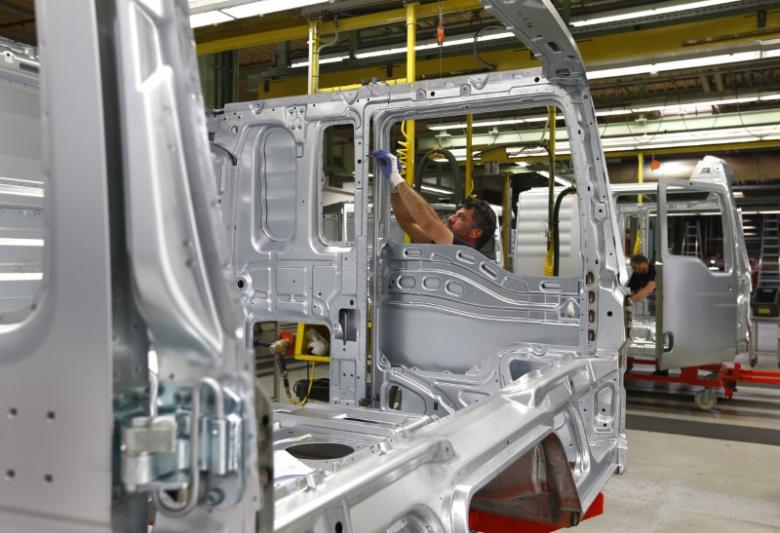
The upturn in euro zone factory activity accelerated in February to the fastest rate in nearly six years, according to a business survey on Wednesday that also showed a weaker euro boosted demand for exports.
IHS Markit’s final manufacturing Purchasing Managers’ Index for the euro zone rose to 55.4 in February, the highest since
April 2011, from January’s 55.2. It was revised down slightly from a flash estimate of 55.5 but remained far above the 50 mark denoting growth in activity.
An index measuring output, which feeds into the composite PMI, due on Friday, jumped to 57.3, which was also the highest
in nearly six years. The flash composite PMI suggested economic growth of 0.6 percent in the first quarter.
“Euro area manufacturers are reporting the strongest production and order book growth for almost six years, in what’s looking like an increasingly robust upturn,” said Chris Williamson, chief business economist at IHS Markit.
“This year has seen firms more optimistic about the future than at any time since the region’s debt crisis. Companies are reporting stronger demand in both home and export markets, with the weakened euro providing an accompanying tailwind to help drive sales.”
Renewed optimism about the region’s economic outlook in recent weeks has been buoyed by a weak euro, which makes the currency bloc’s exports relatively cheap on world markets.
The latest PMI survey’s new export orders sub-index rose to the highest since April 2011 at 55.5, up from January’s 55.2.
The euro is predicted to weaken a further 3 percent against the dollar over the coming year, according to a recent Reuters poll of foreign exchange analysts.
Brisker exports and the fastest growth in prices charged in nearly six years will be welcome news for the European Central
Bank, which is widely expected to remain on the sidelines through upcoming elections in key countries in the region.
Possible upsets in those elections, along with a rise in protectionism worldwide, pose the biggest risks to the euro zone economy, according to a recent Reuters poll of economists.
Indeed, it is still far from clear whether this latest upswing in euro zone activity will last.
But purchasing managers do not seem worried yet.
“Given the current buoyant demand environment, manufacturers are eschewing political uncertainty and quietly getting on with growing their businesses,” added IHS’s Williamson.
“On the price front, not only are higher commodity prices and the weak euro pushing up firms’ costs, but there’s also growing evidence of a sellers’ market developing for many goods as demand exceeds supply, which suggests core inflationary pressures may be starting to rise.”
Source – Reuters














Great article